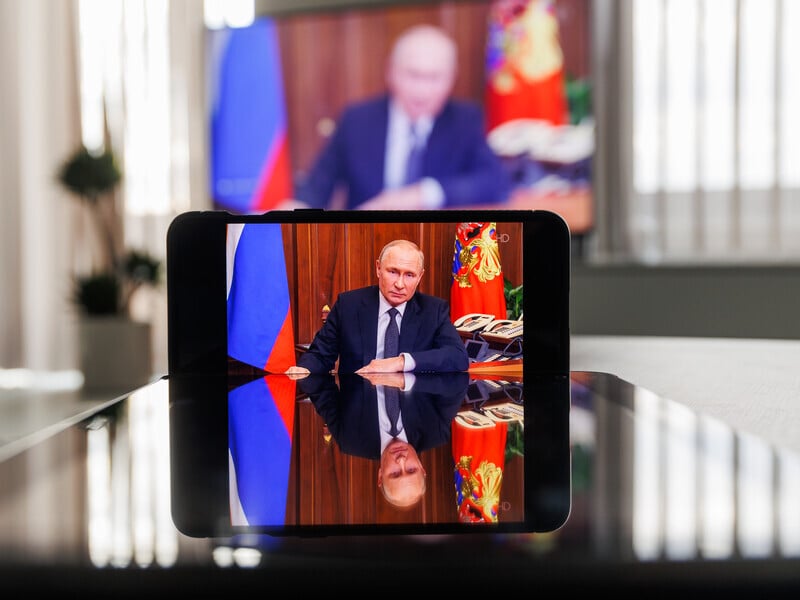The statement reads that this multimedia program aims to highlight the mechanisms and multifaceted nature of propaganda worldwide, raise public awareness of the issues it encompasses, and help better navigate the information space.
Reporters Without Borders emphasizes that "promoting reliable journalism is the antidote to disinformation and propaganda," and that "understanding their mechanisms and identifying their actors is a necessary condition for blocking them."
"The first season [of The Propaganda Monitor] will be devoted to Russian propaganda with a particular focus on RT, a Russian state media outlet that plays a key role in disseminating Kremlin-backed disinformation worldwide. The first season will be dedicated to Russian propaganda, with a particular focus on RT (formerly Russia Today, 'Rossiya Segodnya'. – GORDON) – a propaganda organ controlled by the Russian government, which plays a key role in the Kremlin's disinformation worldwide. The Propaganda Monitor exposes how propaganda is created, disseminated, and transformed. It also proposes concrete solutions – aimed at both decision-makers and the general public – to combat propaganda, especially content that imitates journalistic formats to promote an ideology," RSF explained.
RSF's Director-General Christophe Deloire stated that The Propaganda Monitor aims to further RSF's work in understanding geopolitics, global propaganda, and in fighting the spread of disinformation presented as journalism serving political ideologies.
The organization emphasized that the web interface will feature previously unpublished research, portraits, and important interviews, and promises to be regularly updated with new publications.
The governing committee of the newly created platform includes, among others, a specialist in Russian politics, Dr. Maxim Audinet (France); David Colon, a professor and researcher in political science specializing in media history and mass communication at Sciences Po in Paris (France); Valdez Onanina, editor in chief of the Dakar-based French-language desk of Africa Check (Senegal); Daniel Milo, an analyst and expert in the field of democracy protection, especially in combating disinformation, hybrid threats, and extremism (Slovakia); Rasa Nedeljkov, program director at the Center for Research, Transparency and Accountability (Serbia); Professor Vladimir Rouvinski a professor in the Department of Political Studies at Icesi University in Cali, Colombia; and Dorka Takácsy – a researcher focusing on disinformation and propaganda in Central-Eastern Europe and Russiaresearcher Dorca Takáči (Hungary).
Among the studies already published on the platform are how RT broadcasts propaganda in France circumventing European Union sanctions, how Kremlin propaganda spreads in Serbia, and RT's tactics regarding Russian propaganda among Latin American countries.


 -4 Kyiv
-4 Kyiv


